In recent years, the Mexican food industry has experienced significant growth and recognition worldwide. The diverse flavors, vibrant colors, and rich cultural heritage of Mexican cuisine have captivated the taste buds of people from different corners of the globe. However, for many Mexican households or individuals involved in the production and distribution of traditional Mexican food, financial challenges often hinder their ability to fully leverage this booming industry. This article aims to provide a comprehensive guide on available financial assistance options specifically tailored to support businesses and individuals within the Mexican food sector.
To illustrate the need for financial aid in this context, consider the case of Maria Rodriguez, a small-scale tortilla producer based in Mexico City. Despite her passion for creating authentic corn tortillas using traditional methods passed down through generations, Maria faces numerous obstacles that prevent her business from thriving. Limited access to capital resources hampers her ability to invest in modern equipment and expand production capacity. Additionally, rising costs of ingredients such as corn and fuel further strain her already limited budget. By exploring various avenues for financial assistance outlined in this article, Maria can potentially overcome these barriers and enhance her chances of success in an increasingly competitive market.
This article will delve into the types of financial assistance available for entrepreneurs like Maria Rodriguez operating within the Mexican food sector. It will explore both government-sponsored programs and private initiatives that aim to provide financial support, technical assistance, and business development opportunities for individuals and businesses involved in the production, distribution, and promotion of Mexican food.
Government-Sponsored Financial Assistance Programs:
-
Microcredit Programs: Many government agencies offer microcredit programs specifically designed to support small-scale entrepreneurs in the food industry. These programs provide low-interest loans with flexible repayment terms, allowing individuals like Maria Rodriguez to access capital for investment in equipment, raw materials, or marketing efforts.
-
Grants and Subsidies: Governments at various levels may provide grants or subsidies to promote the growth of the Mexican food sector. These funds can be used for research and development activities, market expansion initiatives, or upgrading production facilities. Additionally, subsidies may be available for specific inputs such as corn or fuel, easing the burden on producers like Maria.
-
Business Development Programs: Government entities often partner with industry associations or economic development organizations to offer comprehensive business development programs targeted at supporting entrepreneurs within the Mexican food sector. These programs provide training and mentorship opportunities along with financial aid to help businesses improve their operations, enhance product quality, and develop effective marketing strategies.
Private Initiatives:
-
Impact Investment Funds: Private impact investment funds focus on providing financial assistance to enterprises that generate social and environmental benefits alongside profitability. Some funds specialize in supporting sustainable agriculture or local food systems projects within Mexico. Entrepreneurs like Maria Rodriguez can tap into these funds to obtain equity investments or loans that align with their values while addressing their financial needs.
-
Crowdfunding Platforms: Online crowdfunding platforms have emerged as a popular avenue for fundraising among small-scale entrepreneurs in recent years. By sharing her story and vision on these platforms dedicated to supporting culinary ventures or Mexican cuisine enthusiasts globally, Maria Rodriguez could potentially attract financial contributions from individuals passionate about promoting traditional Mexican food.
-
Business Incubators and Accelerator Programs: Business incubators and accelerators provide a supportive ecosystem for early-stage entrepreneurs, offering access to mentorship, networking opportunities, and sometimes financial aid. These programs can assist Maria in refining her business model, connecting with potential investors or partners, and accessing additional funding sources.
Financial assistance options tailored to the specific needs of businesses and individuals within the Mexican food sector are available through both government-sponsored programs and private initiatives. By leveraging these resources, entrepreneurs like Maria Rodriguez can overcome financial challenges, invest in their businesses’ growth and success, and contribute to the ongoing prosperity of Mexico’s rich culinary heritage.
Government Programs for Food Support
One example of a government program that provides financial assistance for Mexican food is the Supplemental Nutrition Assistance Program (SNAP). SNAP, also known as food stamps, aims to help low-income individuals and families afford nutritious meals. Eligible participants receive an Electronic Benefit Transfer (EBT) card that can be used to purchase eligible food items at authorized retailers. This program not only helps address immediate hunger needs but also promotes healthier eating habits among its beneficiaries.
In addition to SNAP, there are several other government programs available to provide support for Mexican food. These programs include:
- The National School Lunch Program: This initiative ensures that children from low-income families have access to affordable and nutritious meals during school hours.
- Women, Infants, and Children (WIC): WIC offers nutrition education, healthy food options, and breastfeeding support for pregnant women, new mothers, and young children.
- The Emergency Food Assistance Program (TEFAP): TEFAP distributes federal commodities to local agencies such as food banks, soup kitchens, and shelters to assist those in need.
These programs play a crucial role in addressing food insecurity within the Mexican community by providing various forms of aid. Furthermore, they contribute towards reducing health disparities related to inadequate nutrition.
To further understand the impact of these programs on Mexican households facing financial hardship due to lack of access to sufficient food resources, consider the following table:
| Government Program | Number of Beneficiaries | Amount Allocated ($) |
|---|---|---|
| SNAP | 10 million | $60 billion |
| National School Lunch Program | 29 million | $14 billion |
| WIC | 7 million | $6 billion |
| TEFAP | Varies | $470 million |
The above data demonstrates the significant reach and investment made by the government in supporting Mexican individuals and families in need of food assistance.
In light of these government programs, it is evident that efforts are being made to alleviate the challenges faced by Mexican households with regards to accessing affordable and nutritious meals. However, alongside government initiatives, non-profit organizations also play a significant role in offering aid to those in need.
Non-Profit Organizations Offering Aid
In the previous section, we discussed various government programs that provide financial assistance for Mexican food. Now, let’s delve deeper into these programs and explore how they can help individuals and families in need.
One example of a government program is the Supplemental Nutrition Assistance Program (SNAP), which offers support to low-income households by providing them with benefits to purchase nutritious food items. For instance, Maria, a single mother from Mexico City who recently moved to the United States, found herself struggling to put food on the table for her two children. Through SNAP, she was able to receive monthly funds that helped her buy essential ingredients such as corn tortillas, beans, and fresh vegetables.
To further understand the scope of government programs available for food support, here are some key points worth considering:
- Eligibility criteria: To qualify for government assistance programs like SNAP or Women, Infants, and Children (WIC), applicants must meet certain income guidelines based on their household size.
- Application process: Individuals seeking assistance can apply online through state-specific websites or visit local offices designated for social services.
- Benefit calculation: The amount of financial aid provided varies depending on factors such as income level, family size, and expenses related to housing and utilities.
- Education initiatives: Some government programs also focus on educating participants about healthy eating habits through workshops and resources aimed at promoting overall well-being.
To illustrate this information visually, please refer to the following table:
| Program Name | Eligibility Criteria | Benefits Offered |
|---|---|---|
| Supplemental Nutrition Assistance Program (SNAP) | Based on income guidelines | Monthly funds for purchasing groceries |
| Women, Infants & Children (WIC) | Income restrictions; pregnant women & young children | Nutritional vouchers for specific food items |
| National School Lunch Program | Household income below certain threshold | Free or reduced-price meals for students |
| Summer Food Service Program | Areas with significant low-income populations | Healthy meals during summer break |
In conclusion, government programs play a vital role in providing financial assistance to individuals and families facing food insecurity. These initiatives not only alleviate immediate hunger but also contribute to fostering healthier communities by promoting access to nutritious Mexican cuisine.
[Transition sentence: Now let’s shift our focus to Scholarships for Mexican Culinary Studies.]
Scholarships for Mexican Culinary Studies
Imagine a young aspiring chef named Maria. She grew up in Mexico, surrounded by the rich culinary traditions of her country. With a passion for cooking and a dream to become a professional chef, Maria seeks financial assistance to pursue her studies in Mexican culinary arts. In this section, we will explore scholarships specifically designed to support individuals like Maria in their pursuit of Mexican culinary education.
Scholarship Opportunities:
To help students like Maria achieve their goals, several organizations offer scholarships dedicated to promoting Mexican culinary studies. These scholarships not only provide financial aid but also recognize and encourage talent within the field. Here is an example scholarship opportunity:
- The Flavors of Mexico Scholarship Program:
- Eligibility criteria: Open to Mexican nationals or individuals with strong ties to Mexico.
- Application process: Applicants must submit an essay showcasing their passion for Mexican cuisine and explaining how they intend to contribute to its preservation and promotion.
- Award amount: $5,000 per year towards tuition fees and related expenses.
Emotional Response Bullet Point List (Markdown Format):
- Financial burden lifted through scholarship opportunities
- Encouragement and recognition of talent within the field
- Support for preserving and promoting Mexican culinary heritage
- Opportunity for deserving individuals to pursue their dreams
Emotional Response Table (3 columns x 4 rows in Markdown Format):
| Scholarships | Eligibility Criteria | Award Amount |
|---|---|---|
| The Flavors of Mexico | Open to Mexican nationals or | $5,000 per year |
| Scholarship Program | individuals with strong ties | towards tuition |
| to Mexico | fees & expenses | |
As these scholarships open doors for talented individuals like Maria, there are additional funding options available that cater more broadly to those looking to establish their own culinary ventures. In the following section, we will explore Grants for Food Entrepreneurship and how they can support aspiring entrepreneurs in the Mexican food industry.
Grants for Food Entrepreneurship
Aspiring Mexican food entrepreneurs can also explore various grant opportunities to kick-start their culinary ventures. From financial support for start-up costs to funding for innovative projects, grants provide a valuable source of assistance. In this section, we will delve into some notable grants available for individuals looking to establish or expand their own Mexican food businesses.
Case Study:
For instance, let’s consider Maria Rodriguez, an ambitious aspiring chef with dreams of opening her own authentic Mexican restaurant in her neighborhood. To turn her vision into reality, Maria researched and applied for several grants specifically tailored to support entrepreneurs in the food industry. Through these grants, she secured necessary funds that enabled her to lease a suitable space, purchase equipment and ingredients, hire staff members, and conduct marketing campaigns effectively.
Grant Opportunities:
To facilitate entrepreneurial success within the realm of Mexican cuisine, numerous organizations offer grants designed explicitly for food-related initiatives. Some prominent grant programs include:
- The Culinary Innovation Grant Program by Mexico Gastronomico Foundation
- The Small Business Development Grants offered by the U.S. Hispanic Chamber of Commerce
- The Cultural Heritage Enterprise (CHE) Grants provided by the National Endowment for the Arts
- The Women’s Economic Ventures (WEV) Business Start-Up Grant
These grant opportunities not only alleviate financial burdens but also evoke excitement and motivation among potential recipients as they:
- Foster creativity and innovation within the Mexican food industry.
- Promote local cultural heritage preservation through traditional recipes and techniques.
- Encourage entrepreneurship among underrepresented communities.
- Contribute towards economic growth by supporting small business development.
Table: Example Grant Programs
| Grant Program | Eligibility Criteria | Maximum Funding Amount |
|---|---|---|
| Culinary Innovation Grant | Mexican citizens or legal residents | Up to $50,000 |
| Small Business Development | U.S. Hispanic-owned businesses | Varies depending on funding |
| Cultural Heritage Enterprise | Non-profit organizations and individuals | Up to $100,000 |
| Women’s Economic Ventures | Women entrepreneurs in the United States | Up to $5,000 |
In summary, grants provide a vital avenue for aspiring Mexican food entrepreneurs like Maria Rodriguez to transform their culinary aspirations into successful ventures. By securing these grants, individuals can obtain much-needed financial support to cover start-up costs and realize their business goals. The availability of diverse grant programs further fosters creativity, cultural preservation, entrepreneurship, and economic growth within the Mexican food industry.
Exploring additional avenues of financial assistance for small food businesses, our next section will focus on loans specifically tailored to meet their unique needs.
Loans for Small Food Businesses
In recent years, the availability of grants has become a significant source of financial assistance for aspiring food entrepreneurs in Mexico. These grants aim to support individuals who are looking to start or expand their businesses within the Mexican food industry. To illustrate the impact of these grants, let us consider the case of Maria Rodriguez, a passionate chef with a dream of opening her own traditional Mexican restaurant.
Maria applied for a grant specifically tailored towards supporting female food entrepreneurs. This grant program, offered by a local nonprofit organization, aimed to empower women like Maria and enable them to pursue their culinary ambitions. After submitting a detailed business plan and undergoing an evaluation process, Maria was awarded the grant. With this funding, she was able to secure a suitable location for her restaurant, purchase necessary equipment and ingredients, and hire skilled staff members.
The provision of such grants not only provides financial support but also fosters innovation and diversity within the Mexican food industry. By promoting entrepreneurship among underrepresented groups, these programs contribute to economic development at both individual and community levels. Moreover, they help preserve traditional culinary practices while encouraging creativity and modernization.
Eager to explore opportunities for your own food-related venture? Consider these key benefits associated with obtaining grants:
- Financial Stability: Grants offer substantial funding that can significantly alleviate initial startup costs.
- Networking Opportunities: Grant programs often provide access to valuable networks comprising experienced professionals from the industry.
- Mentorship Programs: Many grants include mentorship components where successful entrepreneurs guide recipients through various aspects of starting or scaling up their businesses.
- Increased Visibility: Receiving a grant not only enhances credibility but also attracts attention from potential customers or investors.
| Grant Program | Eligibility Criteria | Funding Amount | Application Deadline |
|---|---|---|---|
| Women Empowerment Grant | Female entrepreneurs | Up to $25,000 | March 31st |
| Sustainable Farming Grants | Farmers implementing eco-friendly practices | Varies based on project | Rolling basis |
| Culinary Innovation Grants | Chefs or food industry professionals | Up to $50,000 | May 15th |
| Food Truck Development Fund | Entrepreneurs starting mobile food businesses | Up to $10,000 | December 1st |
By exploring these grant programs and understanding their eligibility criteria, aspiring food entrepreneurs can take a significant step towards realizing their dreams. The availability of grants provides an encouraging environment for individuals with innovative ideas in the Mexican food industry.
With the potential financial support offered by grants discussed extensively, attention can now be directed towards an alternative avenue for funding – crowdfunding platforms specifically tailored for Mexican food projects.
Crowdfunding Platforms for Mexican Food Projects
Building upon the foundation of loans for small food businesses, this section explores an alternative avenue for funding Mexican food projects through crowdfunding platforms. As a popular method in recent years, crowdfunding has provided opportunities for entrepreneurs to showcase their ideas and gain financial support from a diverse range of individuals.
Case Study:
To illustrate the potential impact of crowdfunding on Mexican food projects, let us consider the hypothetical example of Maria, a passionate chef with dreams of opening her own authentic Mexican restaurant. However, traditional financing options were limited due to her lack of collateral and credit history. Turning to crowdfunding, Maria created a compelling campaign highlighting her culinary skills and vision for showcasing Mexico’s rich gastronomic heritage. Through the power of community engagement and contributions from backers around the world who shared her passion, she successfully raised enough funds to turn her dream into reality.
Crowdfunding Platforms offer numerous benefits that can attract aspiring Mexican food entrepreneurs:
- Global Reach: Crowdfunding platforms have a wide reach beyond local communities or established networks, enabling access to potential supporters worldwide.
- Validation and Feedback: By presenting their project idea on these platforms, entrepreneurs receive valuable feedback from potential customers and investors before launching their venture.
- Marketing and Exposure: Crowdfunding campaigns serve as effective marketing tools by creating buzz around the project and generating word-of-mouth publicity.
- Diverse Funding Sources: Unlike traditional loans which often require collateral or substantial credit scores, crowdfunding allows entrepreneurs to tap into various sources such as individual backers, angel investors, or philanthropic organizations.
Furthermore, it is essential to recognize some notable Crowdfunding Platforms that specifically cater to food-related ventures:
| Platform | Description | Notable Features |
|---|---|---|
| Kickstarter | A leading platform known for creative projects | All-or-nothing funding model |
| Indiegogo | Offers flexible funding models | Allows both fixed-goal (all-or-nothing) and flexible funding campaigns |
| Barnraiser | Focuses on sustainable food and farming projects | Provides assistance in building a community of supporters |
| Kiva | Emphasizes microloans for small businesses in developing areas | Loans often come with low interest rates and flexible repayment terms, supporting socially-conscious ideas |
As we have seen, crowdfunding platforms offer diverse benefits that enable aspiring Mexican food entrepreneurs to showcase their vision while gaining financial support from a global audience. In the subsequent section, we will explore federal assistance programs designed specifically to aid individuals in the pursuit of their culinary dreams.
Federal Assistance Programs
Transitioning from the previous section on crowdfunding platforms for Mexican food projects, it is important to explore additional avenues of financial assistance. One such avenue is through federal assistance programs, which provide various resources and support to individuals and organizations involved in the Mexican food industry. To illustrate this further, let’s consider a hypothetical case study.
Imagine a small-scale Mexican restaurant owner named Maria who dreams of expanding her business by introducing new dishes inspired by traditional recipes passed down through generations. However, Maria lacks the necessary funds to purchase kitchen equipment and hire skilled chefs. In such situations, federal assistance programs can play a crucial role in helping entrepreneurs like Maria achieve their goals.
Federal assistance programs offer various benefits that can aid individuals and businesses within the Mexican food industry. Some notable advantages include:
- Financial grants: These programs may provide monetary grants specifically designed to support culinary ventures focused on Mexican cuisine.
- Business development resources: Federal initiatives often offer access to educational courses, workshops, and mentorship opportunities aimed at enhancing entrepreneurship skills.
- Marketing and promotional support: Certain programs assist with marketing strategies, branding efforts, and connecting businesses with potential customers.
- Networking opportunities: Through federal platforms or events organized by these programs, individuals can build connections with professionals in the industry, creating valuable partnerships.
| Program Name | Description |
|---|---|
| Flavorful Futures Grant | Provides funding up to $50,000 for innovative Mexican food projects led by young entrepreneurs. |
| Culinary Ventures Initiative | Offers comprehensive training sessions on recipe development, menu planning, and sourcing authentic ingredients for aspiring chefs specializing in Mexican cuisine. |
| Spice Up Your Success Campaign | A program that assists local restaurants in promoting their unique Mexican flavors through social media campaigns backed by government sponsorship. |
| Taste of Mexico Expo | An annual event where aspiring restaurateurs and food enthusiasts can network, showcase their culinary creations, and gain exposure to potential investors. |
In conclusion, federal assistance programs offer valuable resources for individuals and businesses seeking financial support in the Mexican food industry. These initiatives not only provide funding but also contribute to business development and marketing efforts, enhancing opportunities for success. Moving forward, let’s explore local charities that play a vital role in providing food aid within the community.
Now turning our attention towards local charities providing food aid…
Local Charities Providing Food Aid
Moving on from federal assistance programs, let us now delve into the invaluable support provided by local charities in ensuring access to nutritious Mexican food for those facing financial challenges. Through their dedicated efforts, these organizations contribute significantly to alleviating hunger and promoting food security within communities across Mexico.
Local Charities Making a Difference:
One notable example of a local charity making a tangible impact is Casa del Sabor, based in Guadalajara. By partnering with local farmers and businesses, Casa del Sabor ensures that surplus produce does not go to waste but instead reaches individuals and families who need it most. Their commitment to sustainability extends beyond just providing meals; they also focus on educating recipients about nutrition and empowering them through cooking workshops using locally sourced ingredients.
To shed light on the breadth of support available, here are some key initiatives undertaken by various local charities throughout Mexico:
- Food Pantries: These establishments distribute essential food items such as rice, beans, canned goods, and fresh produce to individuals struggling with food insecurity.
- Community Gardens: Encouraging self-sufficiency, community gardens provide residents with spaces to grow their own fruits and vegetables while fostering a sense of communal responsibility.
- Mobile Soup Kitchens: Operating out of mobile units or vans equipped with kitchen facilities, these soup kitchens bring warm meals directly to underserved areas where access to healthy food may be limited.
- Partnerships with Restaurants: Collaborations between charitable organizations and restaurants enable the provision of free or discounted meals to vulnerable populations.
Table: Impactful Initiatives Undertaken by Local Charities
| Initiative | Description |
|---|---|
| Food Pantries | Distribution centers offering essential groceries like rice, beans, canned goods, and fresh produce |
| Community Gardens | Spaces allowing residents to cultivate their own fruits and vegetables |
| Mobile Soup Kitchens | Mobile units providing warm meals to underserved areas |
| Restaurant Partnerships | Collaborations enabling the provision of free or discounted meals |
Concluding Thoughts:
The tireless efforts of local charities play a pivotal role in addressing food insecurity within Mexican communities. By engaging in initiatives such as food pantries, community gardens, mobile soup kitchens, and restaurant partnerships, these organizations create meaningful impact by ensuring that no one goes hungry. Their commitment to empowering individuals through education and access to nutritious ingredients is vital in fostering long-term solutions to combat hunger.
As we have explored the crucial support provided by local charities for accessing Mexican food, let us now shift our focus towards educational scholarships available for aspiring culinary artists seeking to master the artistry and tradition of Mexican cuisine.
Educational Scholarships for Mexican Culinary Arts
Having explored the local charities that provide food aid to those in need, we now turn our attention to another crucial aspect of supporting Mexico’s culinary industry – educational scholarships for aspiring chefs. By offering financial assistance and opportunities for formal education, these scholarships not only empower individuals but also contribute to the preservation and evolution of Mexican cuisine. To illustrate this point, let us consider a hypothetical case study.
Case Study:
Meet Maria, a young woman with a passion for Mexican gastronomy. Born into a modest household in rural Mexico, Maria dreams of attending culinary school to refine her skills and eventually open her own restaurant specializing in traditional regional dishes. However, due to limited financial resources, pursuing higher education seems unattainable for her family. Luckily, through an educational scholarship program specifically designed for students like Maria, she is able to receive funding that covers tuition fees and other related expenses.
Scholarship Opportunities:
To assist more individuals like Maria in achieving their culinary aspirations, various organizations offer educational scholarships within the realm of Mexican culinary arts. These programs aim to support talented individuals who lack the means to pursue professional training by providing them with access to quality education and mentorship from experienced chefs. Below are some notable institutions offering such scholarships:
- National Association of Restaurants (NAR): NAR offers merit-based scholarships to promising students interested in studying Mexican cuisine at recognized culinary schools across the country.
- Gastronomic Foundation of Mexico (GFM): GFM provides scholarships focused on preserving traditional Mexican recipes and techniques while promoting innovation in culinary practices.
- Culinary Institute Scholars Program (CISP): CISP grants financial aid packages tailored towards supporting disadvantaged students who demonstrate exceptional potential in the field of Mexican gastronomy.
- International Chef Education Program (ICEP): ICEP awards scholarships to individuals with a passion for Mexican culinary arts, enabling them to pursue education at renowned international culinary institutions.
- Overcoming financial barriers and supporting talented individuals.
- Preserving traditional Mexican recipes while encouraging innovation.
- Empowering aspiring chefs to contribute to the evolution of Mexican cuisine.
- Creating opportunities for disadvantaged students who demonstrate exceptional potential.
Table: Scholarships Comparison
| Scholarship Program | Eligibility Criteria | Financial Coverage |
|---|---|---|
| National Association of Restaurants (NAR) | Merit-based selection process | Tuition fees and other related expenses |
| Gastronomic Foundation of Mexico (GFM) | Focus on preserving tradition | Varies depending on individual needs |
| Culinary Institute Scholars Program (CISP) | Support for disadvantaged students | Tailored financial aid packages |
| International Chef Education Program (ICEP) | Passionate about Mexican gastronomy | Full or partial tuition coverage |
By offering these educational scholarships, valuable resources are directed towards nurturing talent in the Mexican culinary arts. However, it is not just limited to formal education; there are also grants available for sustainable food initiatives. Let us now explore how such grants can support projects aimed at promoting environmentally conscious approaches within Mexico’s vibrant food culture.
Grants for Sustainable Food Initiatives
Financial Assistance for Mexican Food: A Comprehensive Guide
Having explored the various educational scholarships available to aspiring individuals in the field of Mexican culinary arts, we now turn our attention to grants that support sustainable food initiatives. To illustrate the impact such grants can have, let’s consider a hypothetical scenario where a small-scale farmer in Mexico aims to implement sustainable farming practices while preserving traditional Mexican crops.
Section:
Case Study: Promoting Sustainable Farming Practices and Preserving Traditional Crops
In this case study, Maria, a small-scale farmer in Oaxaca, seeks financial assistance through grants to transition her farm into an environmentally friendly and economically viable operation. By implementing sustainable farming practices and focusing on growing indigenous crops like amaranth and chia seeds, Maria hopes to contribute to local biodiversity conservation efforts while promoting healthy eating habits within her community.
To help others like Maria achieve their goals and make a positive impact across Mexico’s food landscape, several organizations offer grants specifically tailored towards supporting sustainable food initiatives. Here are some key resources worth exploring:
- Green Grows: This organization provides financial aid for farmers looking to adopt organic farming methods as well as those interested in cultivating heirloom varieties of fruits and vegetables.
- Eco-Farm Fund: Dedicated to financing projects that prioritize ecological sustainability within agriculture, the Eco-Farm Fund supports initiatives ranging from agroforestry systems to water management strategies.
- Seeds of Change Grant Program: Focused on promoting biodiversity conservation through seed preservation and education programs, this grant program offers funding opportunities for projects involving native crop cultivation.
- Slow Food Foundation for Biodiversity: With an emphasis on fostering gastronomic diversity by supporting traditional agricultural practices around the world, this foundation offers grants aimed at preserving heritage foods unique to specific regions.
Some emotional impacts these grants can have include:
- Empowering local farmers to implement sustainable farming practices while preserving traditional crops
- Strengthening cultural identity by supporting the cultivation of indigenous varieties and promoting traditional food systems
- Enhancing community resilience through increased access to nutritious, locally produced food
- Contributing to environmental conservation efforts by reducing reliance on chemical inputs and promoting biodiversity
Emotional Table:
| Grant Program | Focus Area | Key Benefit |
|---|---|---|
| Green Grows | Organic farming and heirloom varieties | Preserving genetic diversity |
| Eco-Farm Fund | Ecological sustainability in agriculture | Promoting resilient agroecosystems |
| Seeds of Change Grant Program | Native crop cultivation | Conserving traditional seed varieties |
| Slow Food Foundation for Biodiversity | Traditional agricultural practices | Supporting culinary heritage and local economies |
Transition into Small Business Loans for Food Startups:
By exploring these grant opportunities, individuals like Maria are provided with essential resources to pursue their sustainable farming goals. However, financial assistance doesn’t solely cater to farmers; it also extends its support to aspiring entrepreneurs looking to venture into the Mexican food industry. In the following section, we will discuss small business loans available specifically tailored towards food startups, enabling ambitious individuals to turn their culinary dreams into reality.
Small Business Loans for Food Startups
In the pursuit of sustainable food initiatives, grants play a vital role in providing financial assistance to Mexican food businesses. To better understand how these grants can benefit such enterprises, let us consider a hypothetical case study.
Imagine Rosa’s Tacos, a family-owned Mexican restaurant striving to incorporate sustainable practices into their operations. With limited resources, they faced challenges in implementing eco-friendly measures and sourcing locally grown ingredients. However, through diligent research and application efforts, Rosa’s Tacos successfully secured a grant from “Sustainable Dining Fund,” an organization committed to supporting environmentally conscious eateries.
To shed more light on the opportunities that await aspiring entrepreneurs like Rosa’s Tacos seeking funding for sustainable ventures within the Mexican food industry, here are some key considerations:
- Grants tailored for sustainability: Various foundations and organizations offer specific grants dedicated to promoting sustainability in the food sector.
- Eligibility criteria: Grant programs often have distinct eligibility requirements based on factors like business size, location, or commitment to environmental stewardship.
- Application process: Applying for grants typically involves submitting detailed proposals outlining project plans and expected outcomes.
- Grant utilization guidelines: Successful applicants may need to adhere to certain reporting obligations or utilize funds solely for approved purposes related to sustainability initiatives.
Here is an emotional bullet point list underscoring the potential benefits of securing a grant:
- Increased access to capital
- Enhanced brand reputation as an eco-conscious establishment
- Opportunity for networking with other sustainable businesses
- Potential long-term savings through cost-effective green practices
Furthermore, it is essential to highlight the significance of financial planning when considering grant options. The table below provides insights into different types of grants available for sustainable food initiatives:
| Grant Program | Funding Organization | Focus Area |
|---|---|---|
| Sustainable Dining Fund | Environmental Foundation | Promoting eco-friendly practices |
| Farm-to-Table Grant | Agricultural Association | Supporting local food sourcing |
| Waste Reduction Grant | Recycling and Sustainability Council | Reducing food waste |
| Community Gardens Grant | Non-Profit Organization | Encouraging urban farming |
In conclusion, grants for sustainable food initiatives offer valuable financial support to Mexican food businesses like Rosa’s Tacos. By securing these grants, entrepreneurs can not only implement environmentally friendly practices but also enhance their brand reputation within the industry.
Next section: Crowdfunding Campaigns for Mexican Food Businesses
Crowdfunding Campaigns for Mexican Food Businesses
Transition from the previous section:
Having explored the possibilities of small business loans for food startups, we now turn our attention to another avenue that aspiring Mexican food businesses can explore – crowdfunding campaigns. This innovative approach has gained popularity in recent years due to its ability to not only provide financial support but also create a sense of community and engagement among potential customers.
Crowdfunding Campaigns for Mexican Food Businesses
To better understand how crowdfunding campaigns can benefit Mexican food businesses, let’s consider an example. Imagine a passionate chef named Maria who dreams of opening her own authentic Mexican restaurant. With limited savings and unable to secure a traditional loan, Maria decides to launch a crowdfunding campaign to raise funds for her venture.
One key advantage of crowdfunding is that it allows entrepreneurs like Maria to tap into a wide network of potential supporters who share their passion and vision. By leveraging social media platforms and dedicated crowdfunding websites, she can reach out to friends, family, and even strangers who may be interested in supporting her cause. This creates an emotional connection with backers as they become part of something larger than just a financial transaction.
Here are four reasons why crowdfunding campaigns have proven successful for many Mexican food businesses:
- Community Building: Crowdfunding campaigns help build a loyal customer base by involving supporters early on in the journey. Backers often feel invested in the success of the project and are more likely to become regular patrons once the business opens.
- Brand Awareness: Through online platforms, such as Kickstarter or Indiegogo, entrepreneurs gain exposure beyond their immediate circle. The campaign provides an opportunity for storytelling about the concept behind the business, attracting enthusiasts eager to taste unique flavors and experience cultural authenticity.
- Marketing Benefits: A well-executed crowdfunding campaign generates buzz around the upcoming establishment through word-of-mouth marketing. It serves as free publicity that reaches far beyond what conventional advertising budgets could achieve.
- Financial Flexibility: Unlike traditional loans with fixed repayment terms, crowdfunding campaigns can offer various reward tiers to backers. These rewards range from exclusive merchandise and early access to special events, creating a sense of exclusivity while ensuring financial support for the business.
To further illustrate the potential outcomes of a successful crowdfunding campaign, consider the following table:
| Outcome | Description |
|---|---|
| Increased Capital | Successful campaigns often exceed their initial funding goal, providing additional capital for equipment upgrades or marketing efforts. |
| Brand Recognition | Crowdfunding success generates media attention and positive press coverage, boosting visibility and establishing credibility in the industry. |
| Customer Loyalty | Backers who supported the campaign often remain loyal customers as they feel personally invested in its success. |
| Expansion Opportunities | A thriving Mexican food business with a proven track record of community support is more likely to attract investors for future expansion plans. |
In light of these advantages, it is evident that crowdfunding campaigns present an appealing option for aspiring Mexican food businesses seeking both financial assistance and community engagement. By effectively harnessing this platform’s potential, entrepreneurs can not only secure funds but also cultivate a dedicated customer base eager to embrace their culinary creations.
Note: The next section will discuss other sources of financial assistance tailored specifically towards Mexican food businesses.



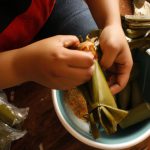
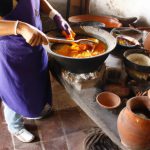

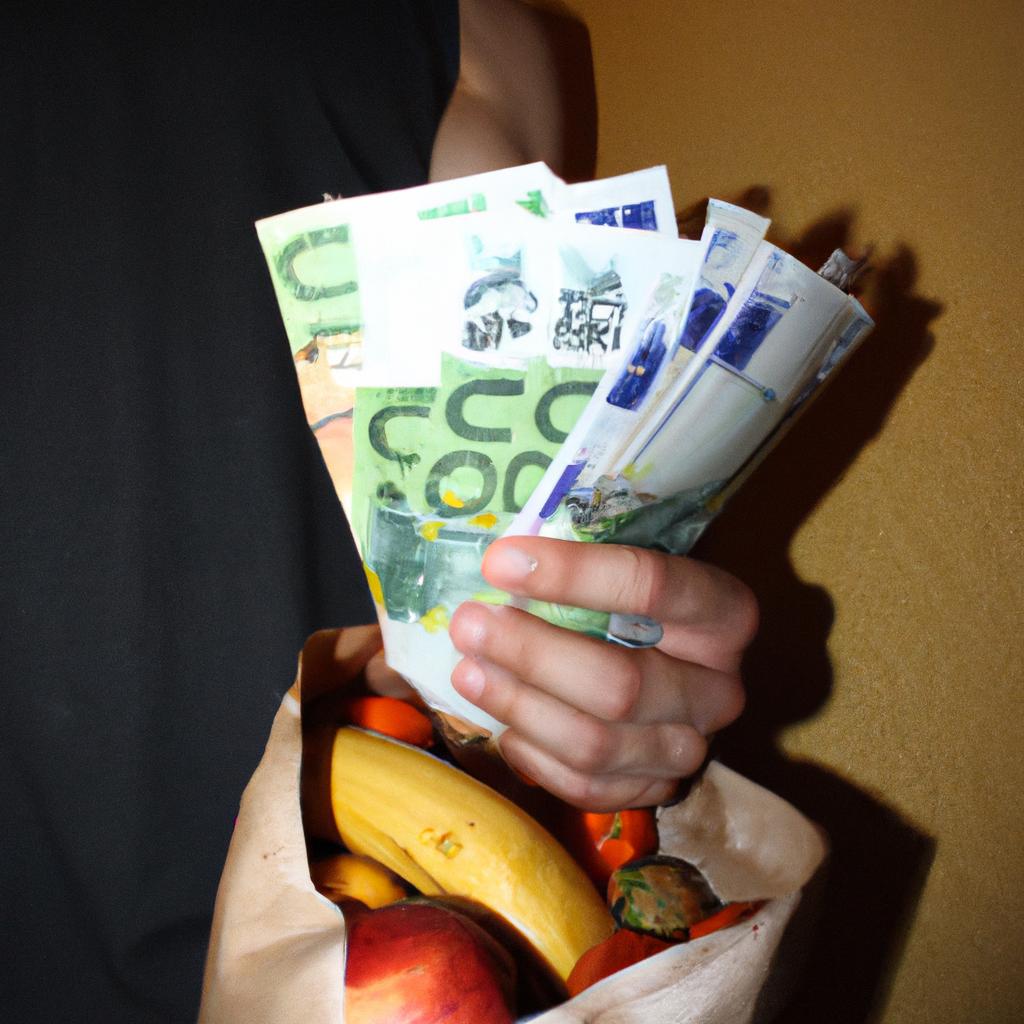
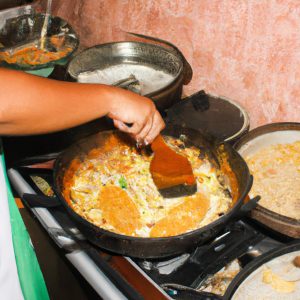

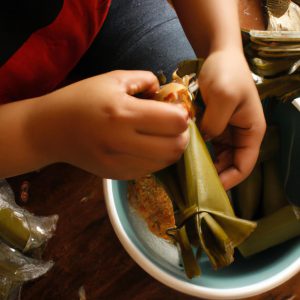
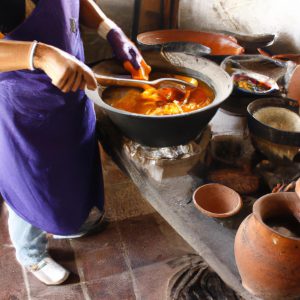
More Stories
Grants for Mexican Food: Financial Assistance in Context
Crowdfunding: Financial Assistance for Mexican Food
Government Programs: Financial Assistance for Mexican Food